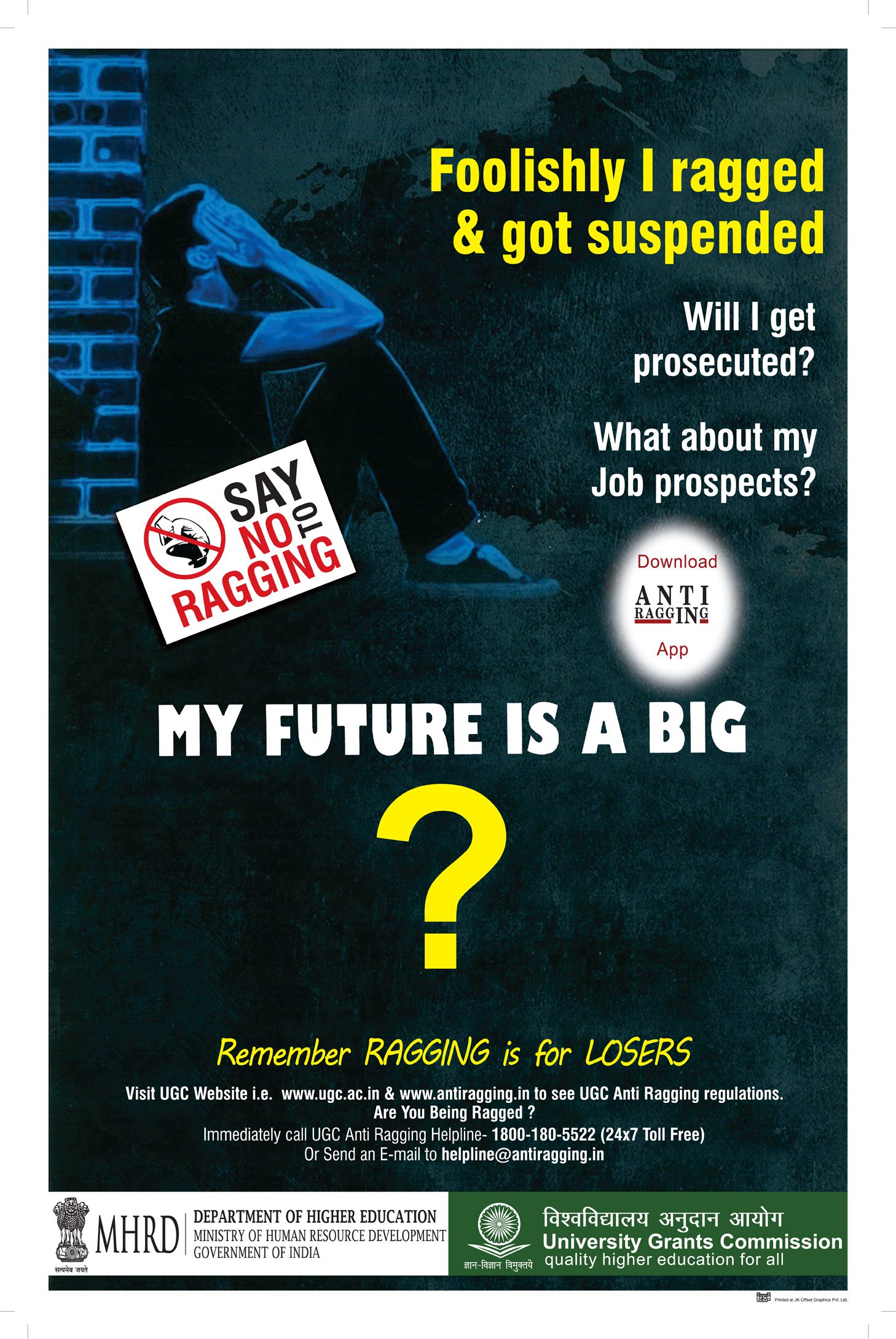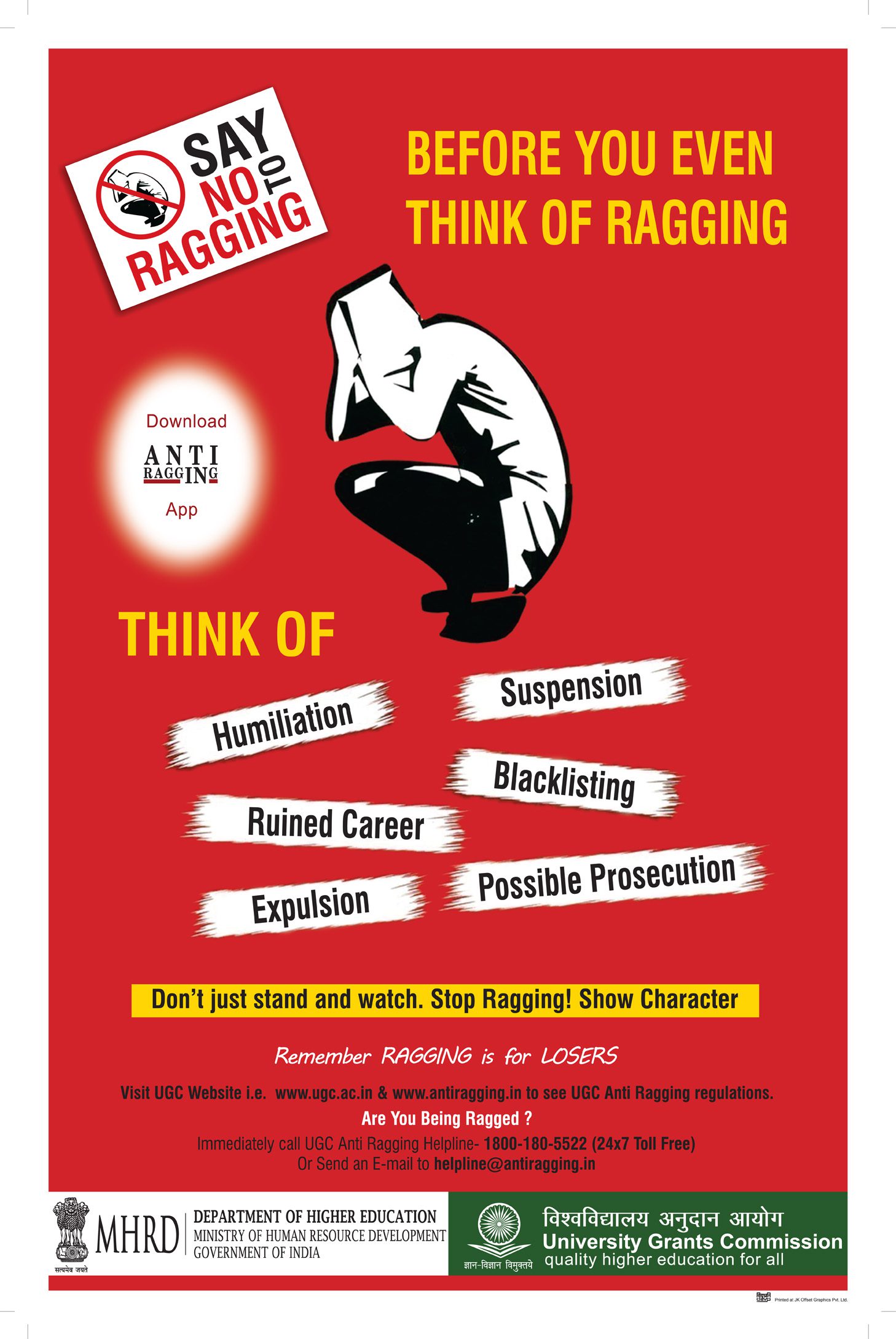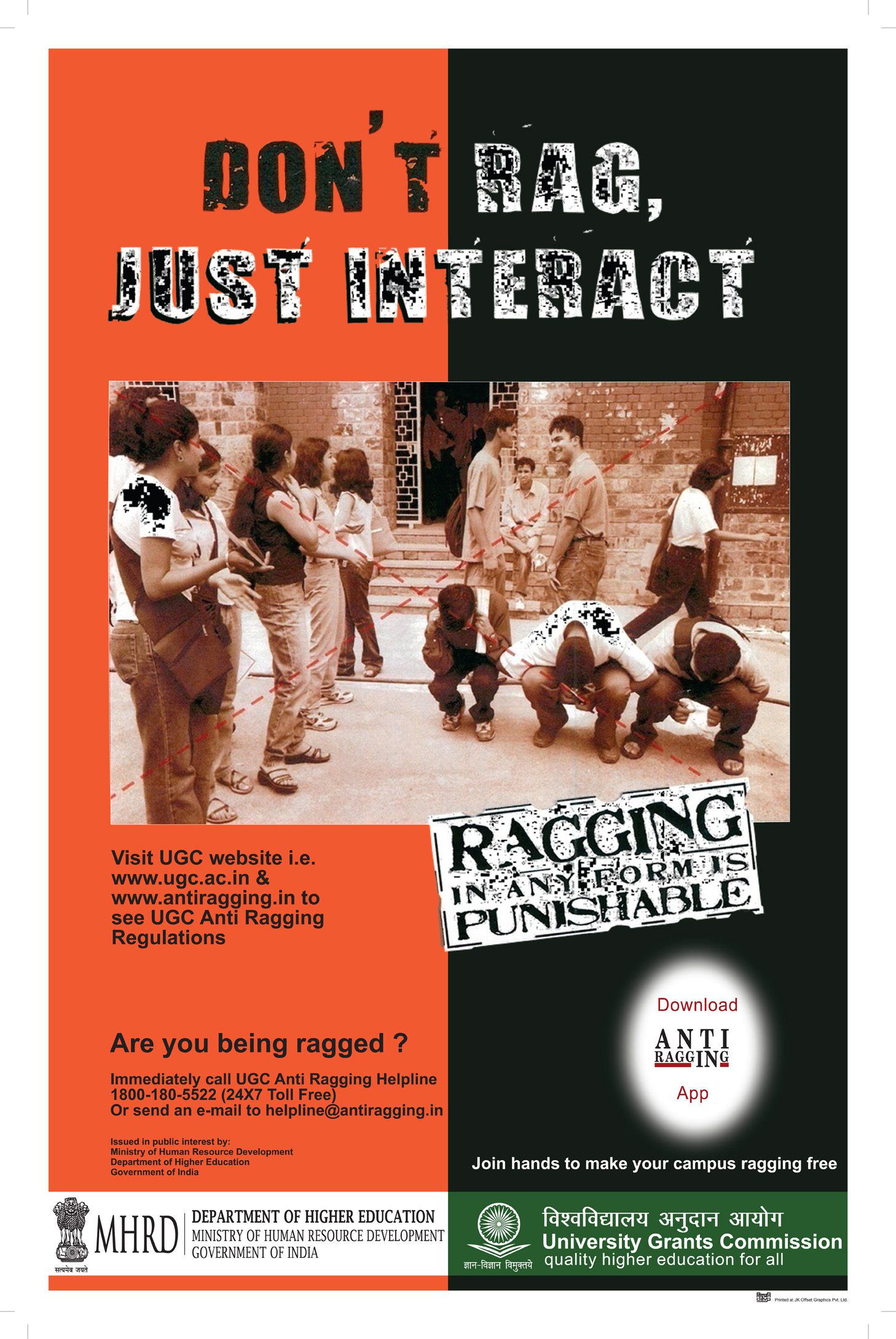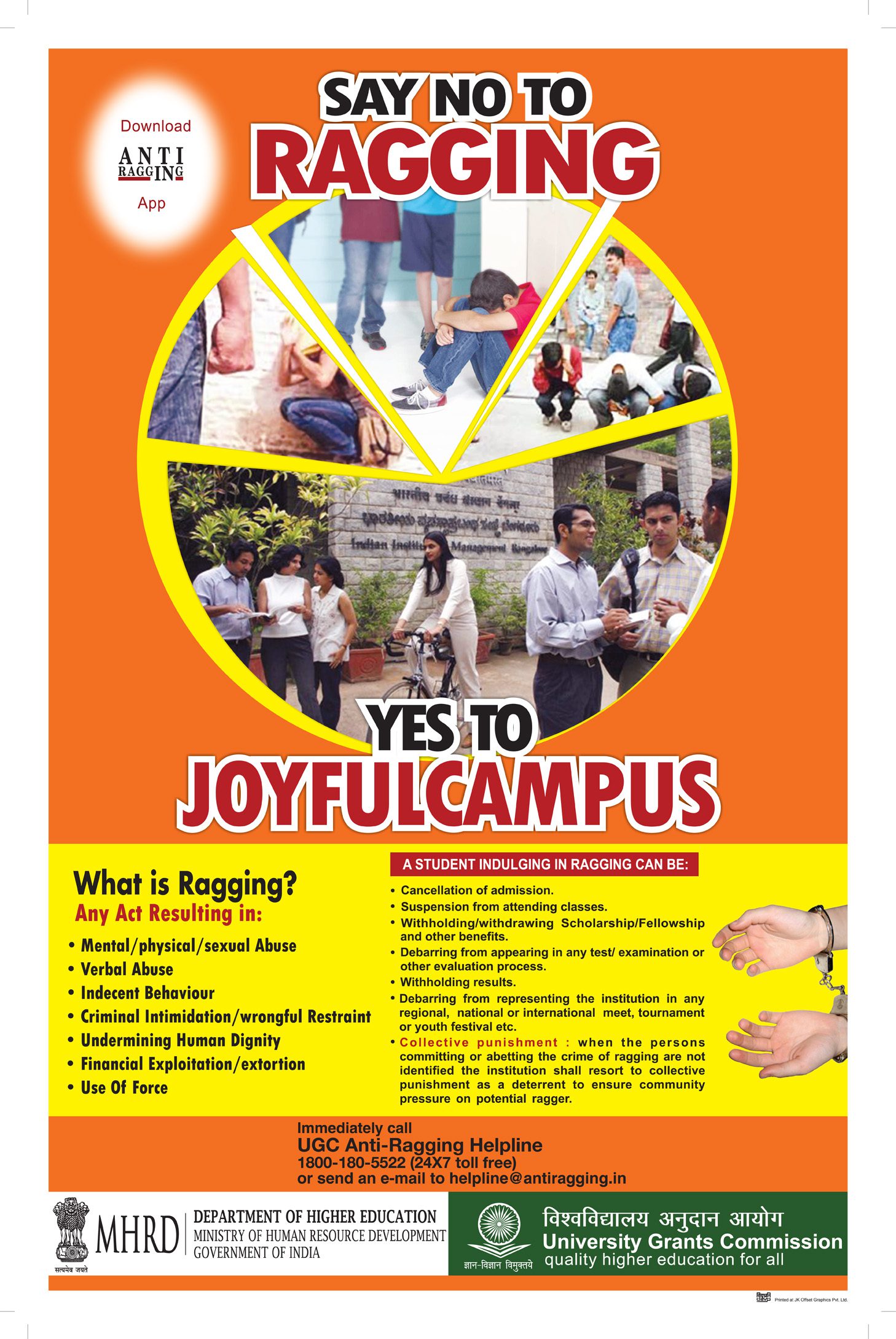



Ragging, or the practice of senior students harassing, bullying, or abusing newcomers, has long been a troubling issue in educational institutions in India. Although intended by some as a method of “welcoming” new students, it often leads to severe mental, emotional, and sometimes even physical harm. Victims may suffer from psychological distress, depression, low self-esteem, and academic setbacks, causing some to abandon their studies or, in extreme cases, suffer irreparable trauma. The harmful effects of ragging extend beyond individuals, tarnishing the educational atmosphere by fostering fear and hostility.
To address this, Indian government has implemented stringent anti-ragging laws, primarily regulated by the University Grants Commission (UGC). The UGC’s regulations emphasize zero tolerance towards ragging and provide a detailed framework for prevention and punishment. These include the establishment of anti-ragging committees and cells within institutions, a mandatory affidavit signed by students and parents, and a helpline for immediate support. Severe disciplinary actions, such as suspension, expulsion, and even legal consequences under the Indian Penal Code, can be imposed on perpetrators. Additionally, the UGC mandates awareness programs to educate students about the consequences of ragging.
These legal measures, coupled with institutional vigilance and awareness, aim to create a safe and supportive environment for students. By enforcing these laws, the UGC strives to eliminate ragging and encourage mutual respect and camaraderie within educational institutions, ensuring that campuses remain spaces for learning and growth rather than intimidation and fear.
Lodge your complaint here (E Samadhan)
24×7 Helpline Number : 1800-180-5522 (Toll Free)
